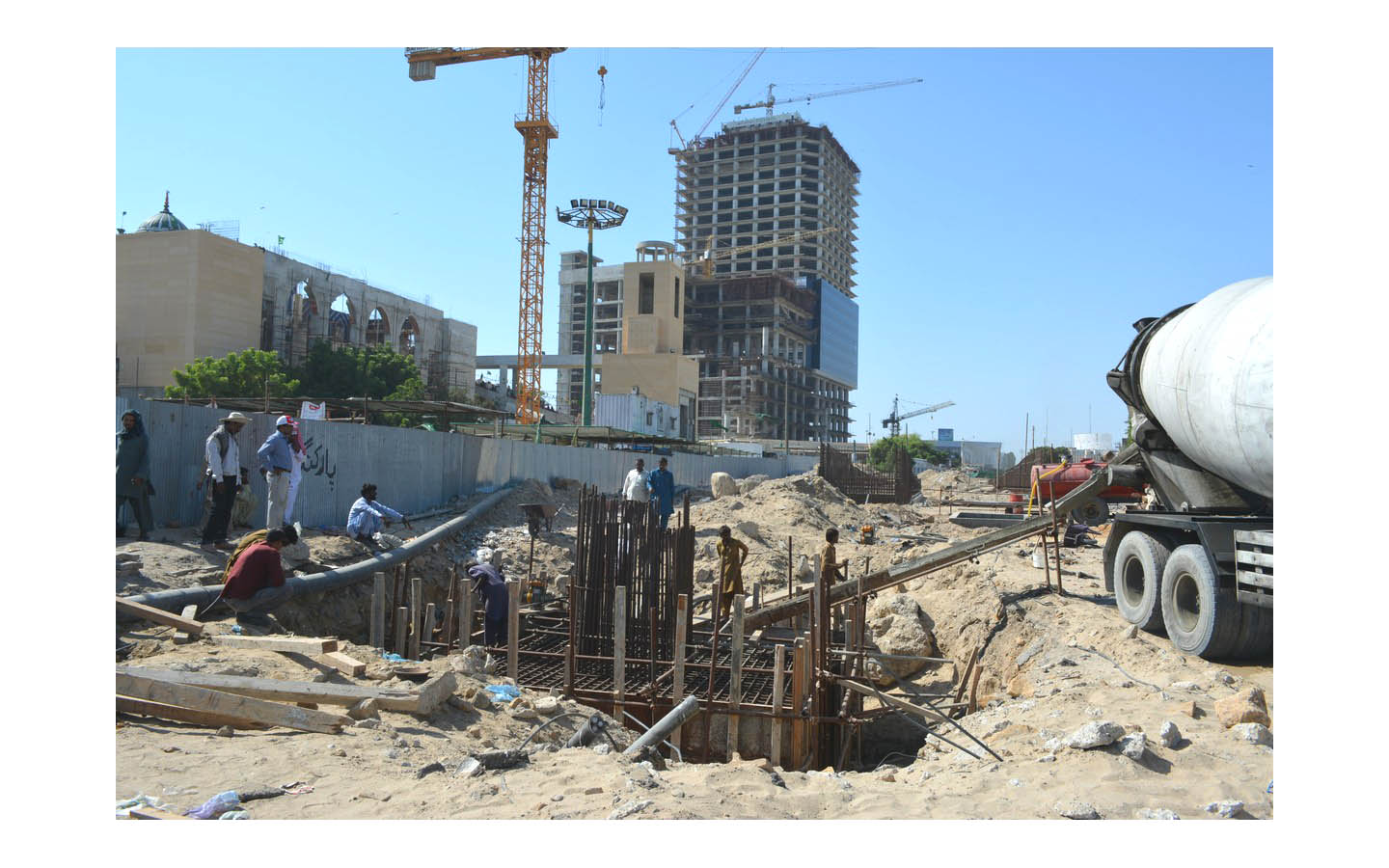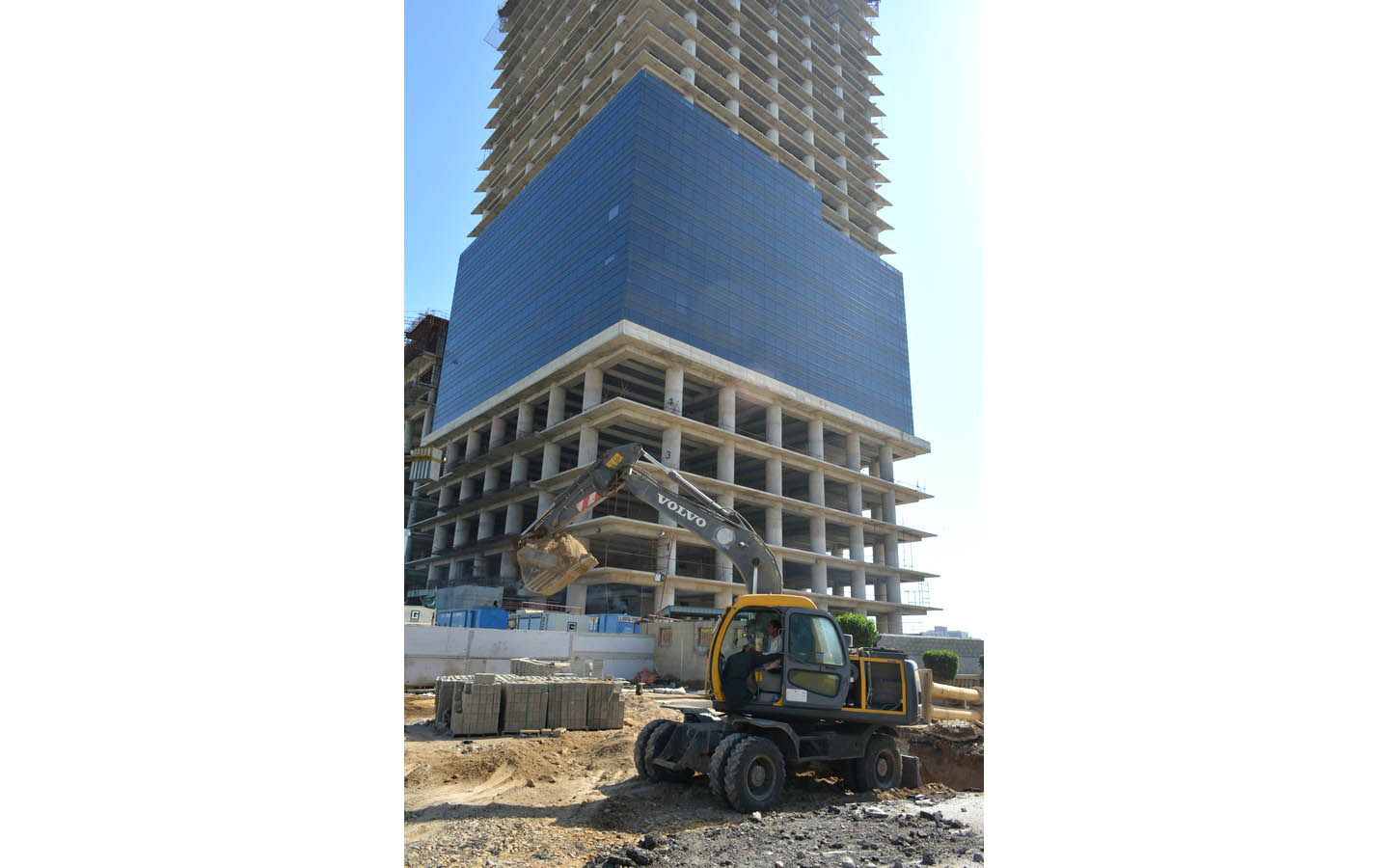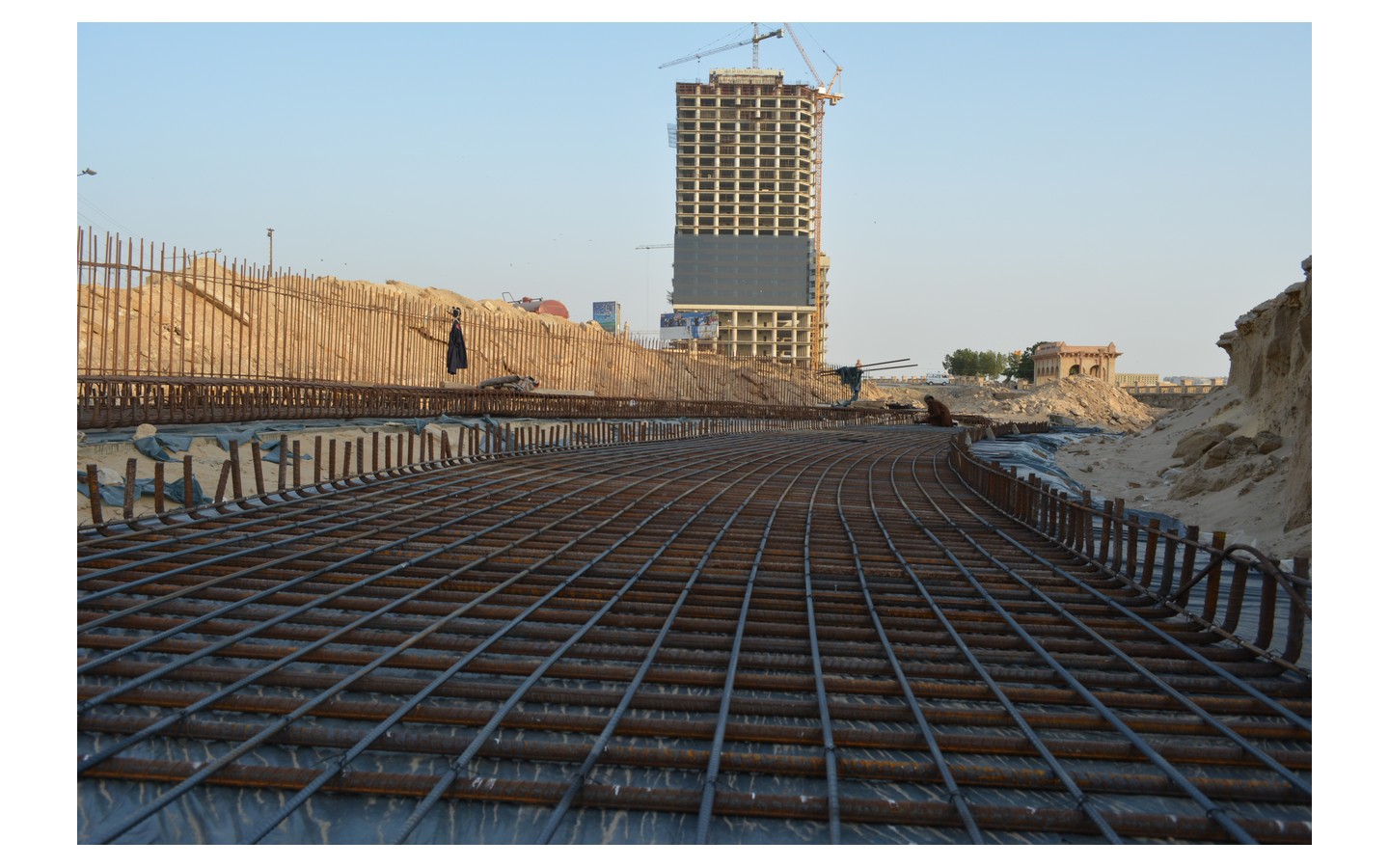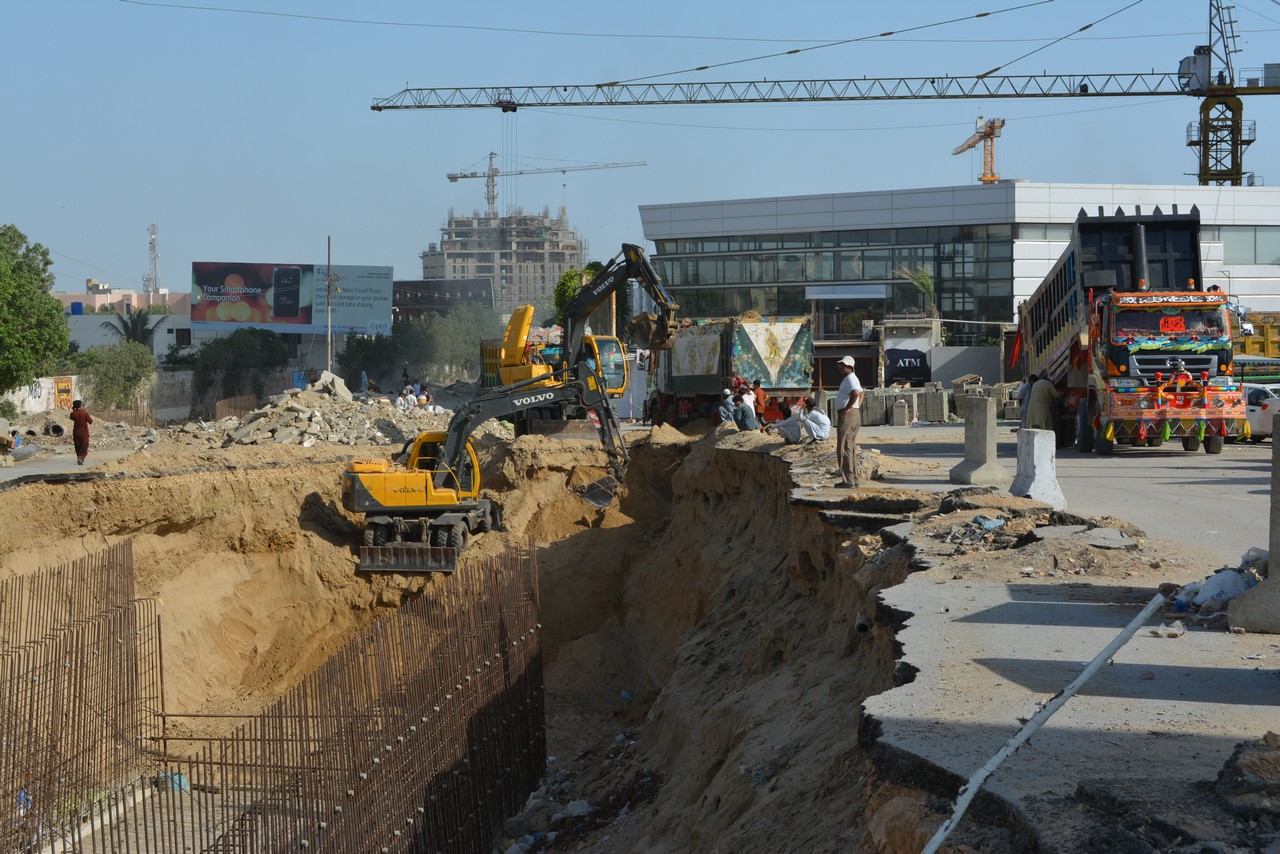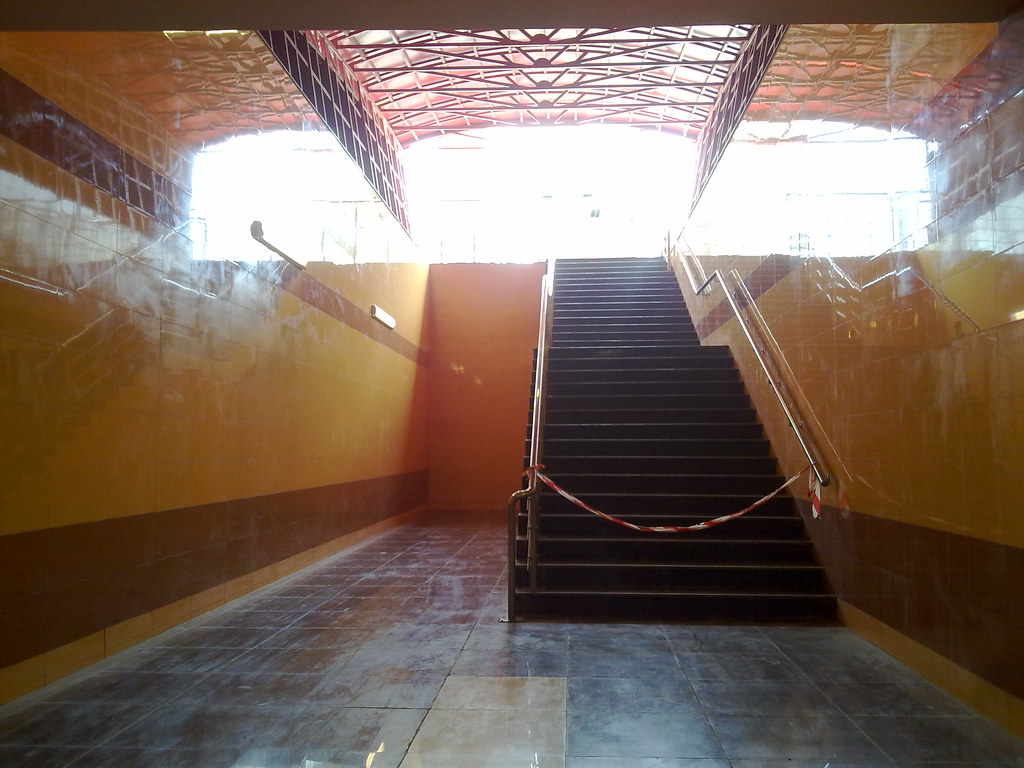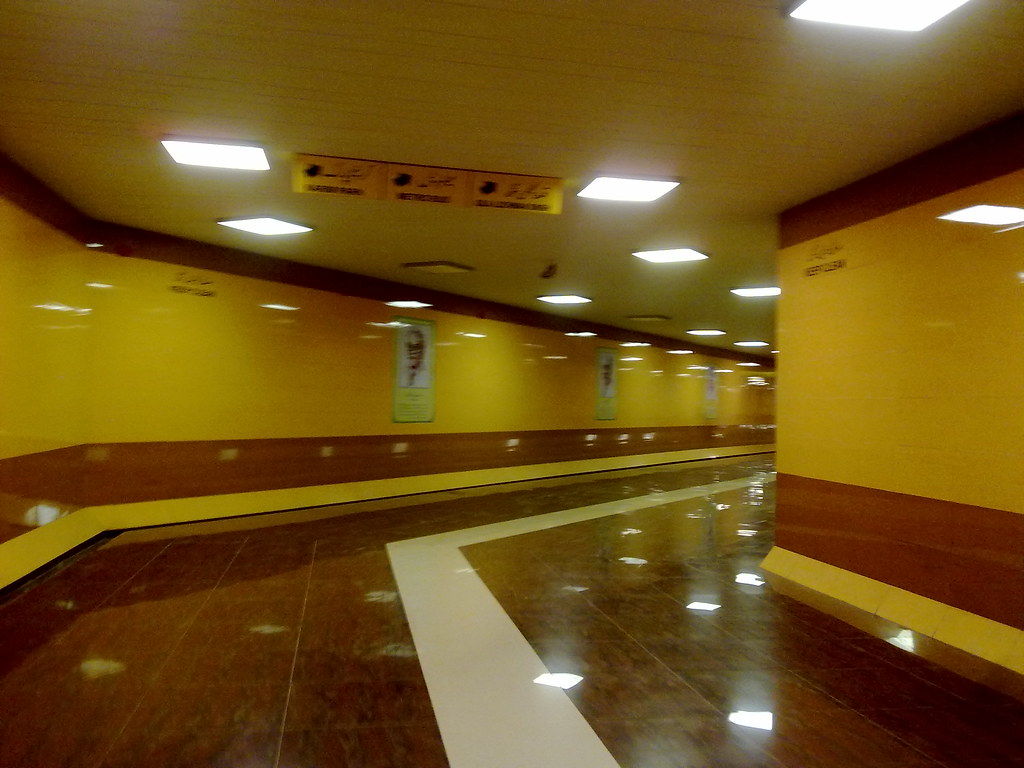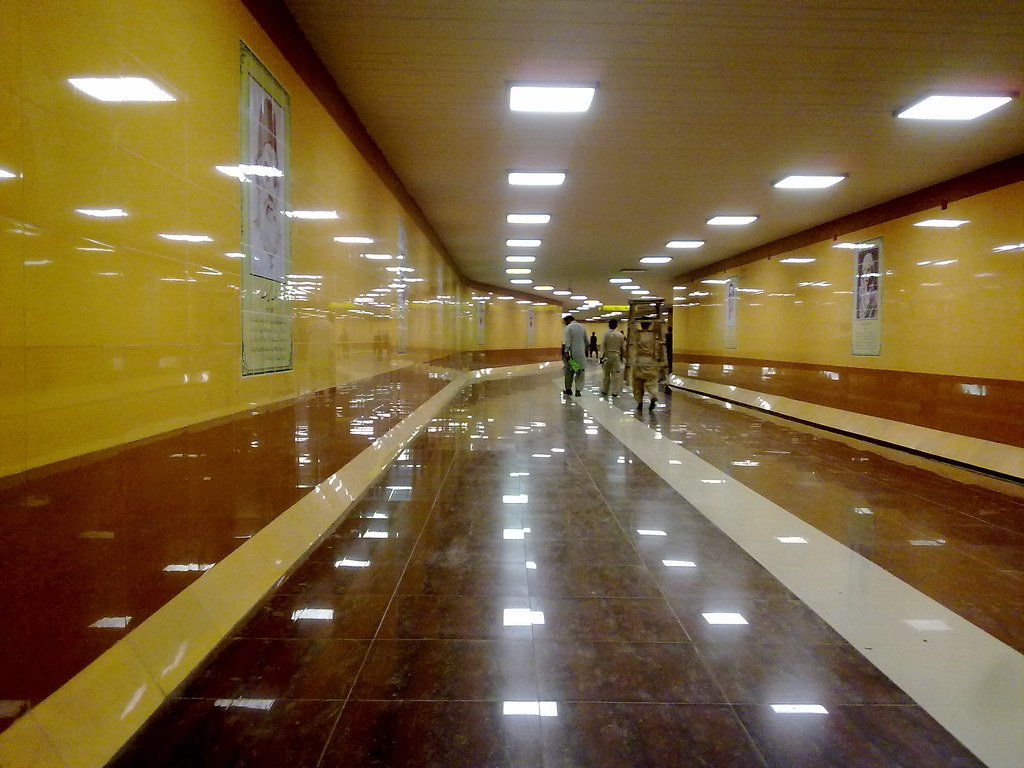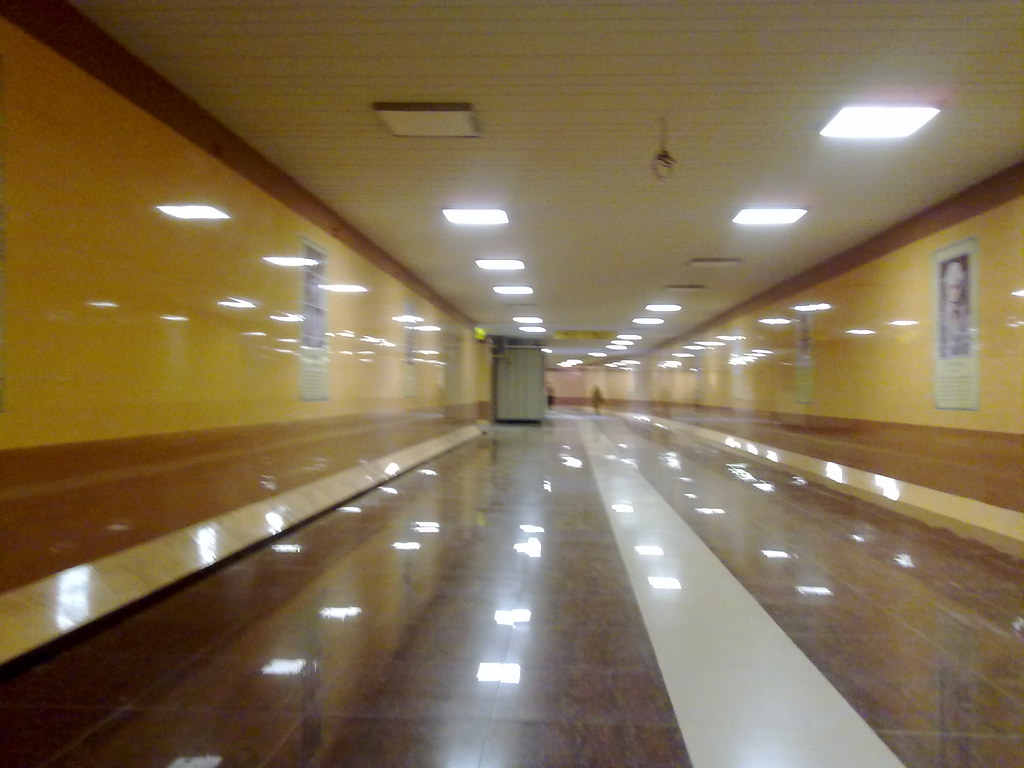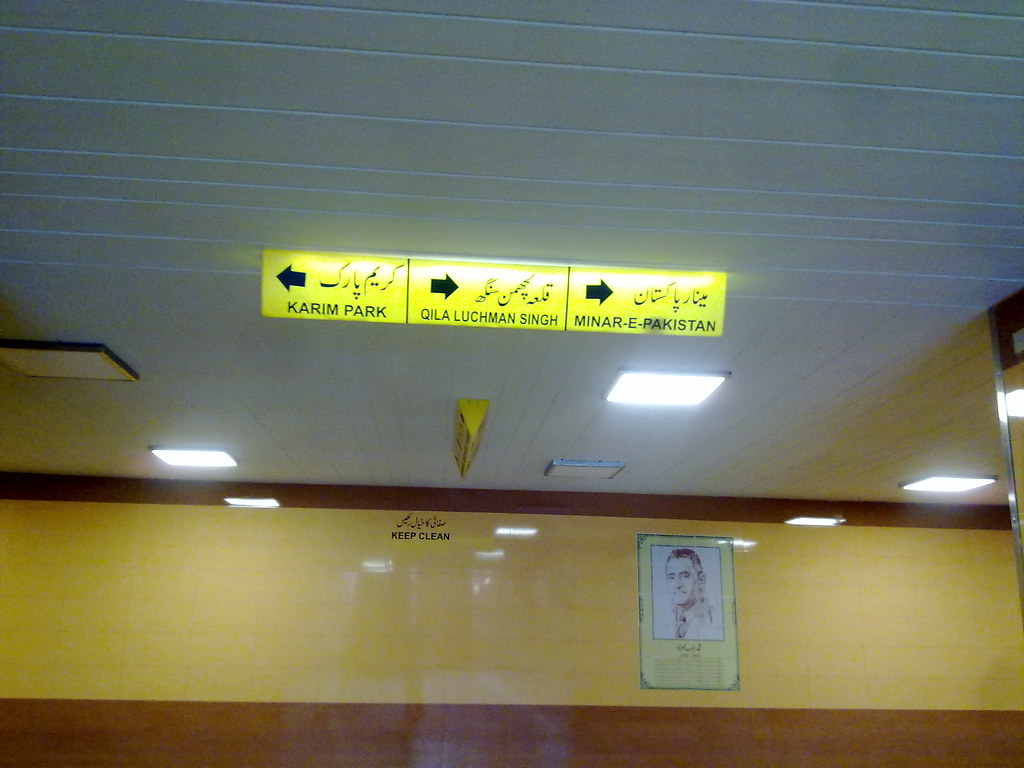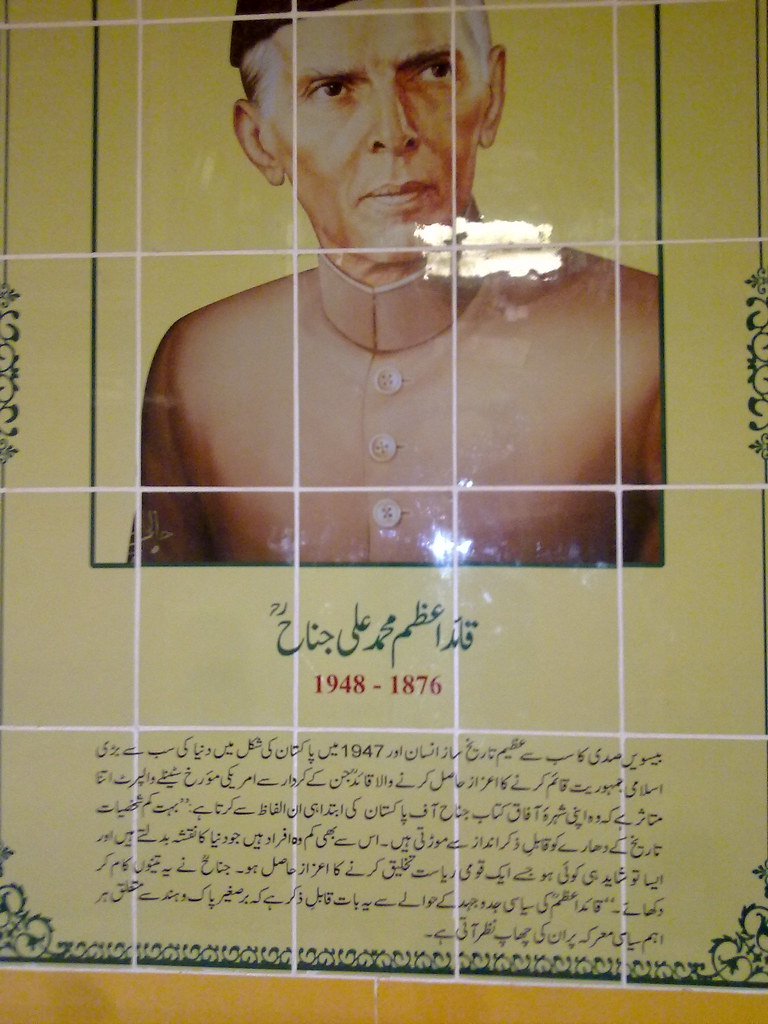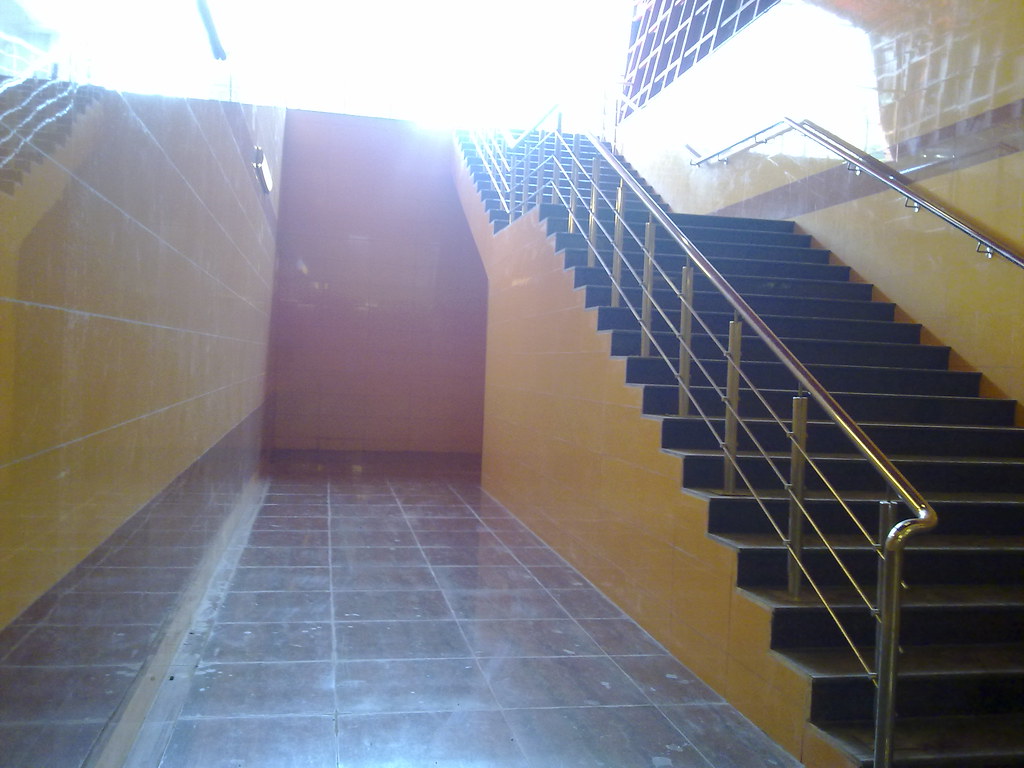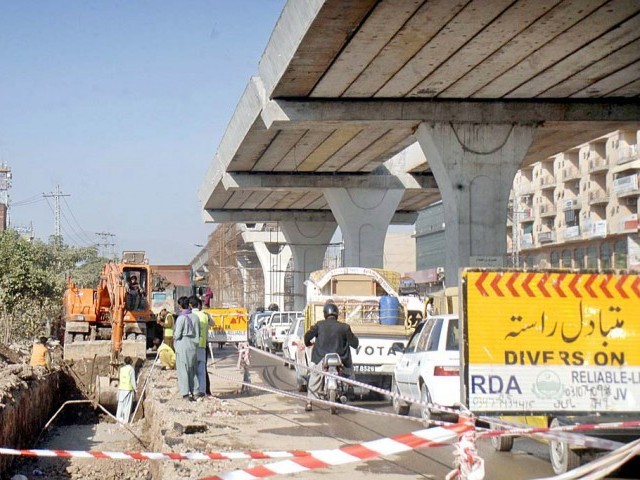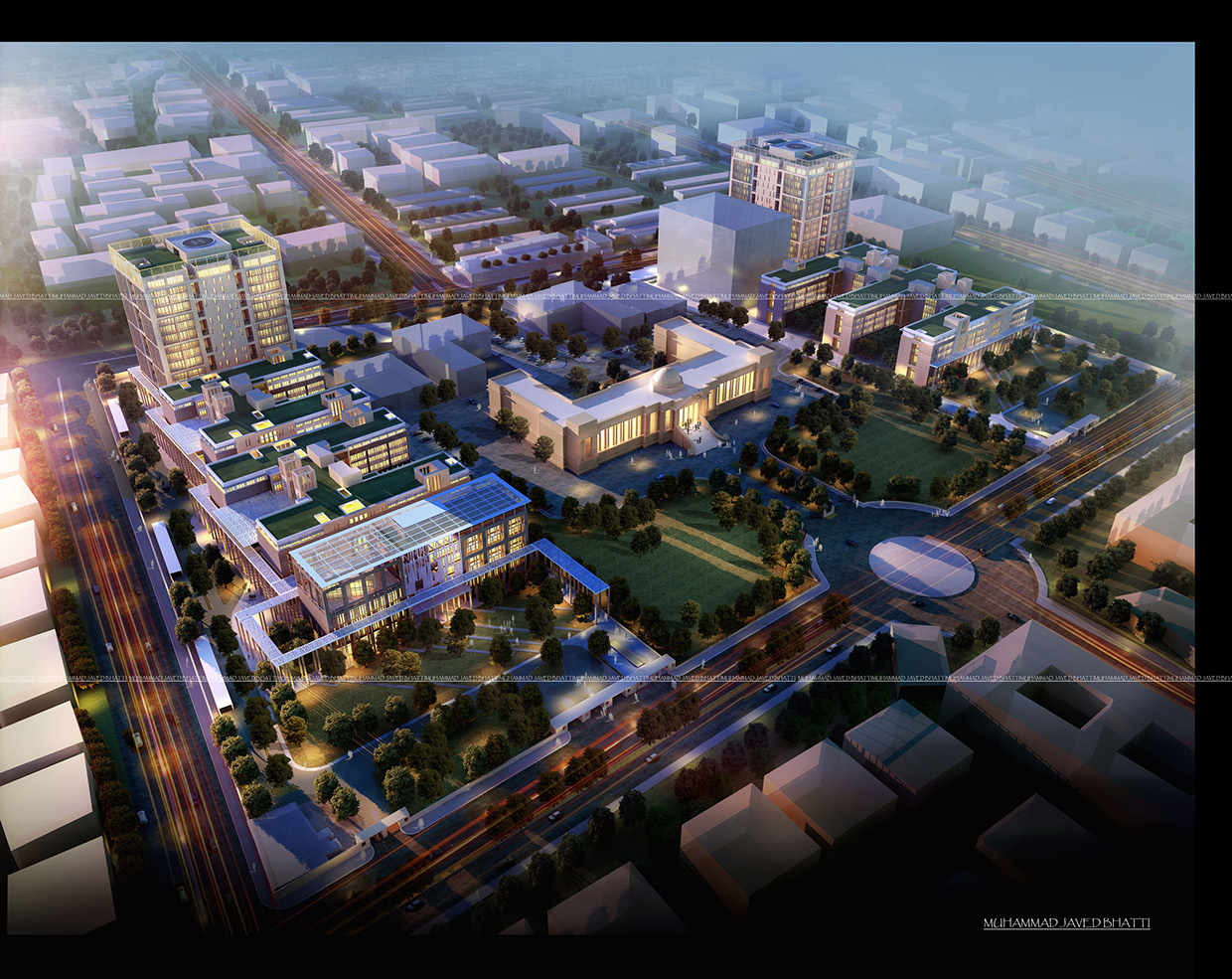How to install the app on iOS
Follow along with the video below to see how to install our site as a web app on your home screen.
Note: This feature may not be available in some browsers.
You are using an out of date browser. It may not display this or other websites correctly.
You should upgrade or use an alternative browser.
You should upgrade or use an alternative browser.
Infrastructure Development in Pakistan
- Thread starter moha199
- Start date
Edevelop
ELITE MEMBER

- Joined
- Feb 2, 2007
- Messages
- 14,722
- Reaction score
- 23
- Country
- Location
Naluchi Cable Bridge in Muzaffarabad:


Credit: Hum Barlas Mughal
M-2

Credit: Omair Zafar
Reconstruction of Karakoram Highway

KKH getting final makeover in Gulmit Gojal Hunza Naga

Credit: Muhammad Rahim
Construction of RCC bridge in Gojal or Arttabad Lake in between Shishket and Gulmit village under process



Credit: Hum Barlas Mughal
M-2

Credit: Omair Zafar
Reconstruction of Karakoram Highway

KKH getting final makeover in Gulmit Gojal Hunza Naga

Credit: Muhammad Rahim
Construction of RCC bridge in Gojal or Arttabad Lake in between Shishket and Gulmit village under process

Sulman Badshah
STAFF

- Joined
- Feb 22, 2014
- Messages
- 4,274
- Reaction score
- 33
- Country
- Location
SAC keen to invest $2b in KP energy projects

PESHAWAR - Suadi American Consortium has shown its interest to invest up to $2 billion in the development of energy sector projects in Khyber Pakhtunkhwa to utilise natural resources of province in order to generate cheap electricity.
In this context, a simple documentary procedure will be proposed to start various projects in hydel, solar and oil & gas sector on fast track basis. A group of investors of Suadi American Consortium leading by the Princeton Environmental Group’s president Peter Tien paid visit to civil secretariat Peshawar on Thursday.
Meanwhile, the secretary energy & power department Sahibzada Saeen Ahmed gave a detailed presentation to the investor group about the available energy sector projects in Khyber Pakhtunkhwa. The same investment presentation was also attended by CEO PEDO, Engr. Bahadur Shah, CEO KPOGCL Engr. Razi uddin, CPO E&P Syed Zainullah Shah and chief finance officer Akber Ayub. During the presentation, same working investment group was informed about the available 15 hydropower projects those feasibility studies have already been prepared and ready for construction. Group leader Peter Tien has expressed that his group intends to invest up to $2 billion in energy sector of KP but a simple procedure will be adopted in documentary procedure while starting the construction work in these projects. He hoped that our group will produce cheap electricity through available natural energy resources of the province. He stated that our working group will visit again Peshawar in next month to plan the commencement of construction works in energy projects.
SINDH HIGH COURT STAYS NUCLEAR POWER PLANT CONSTRUCTION

Prime Minister Nawaz Sharif at a ceremony launching the construction of the atomic power plant at Paradise Beach. PID—AFP
TWO-MEMBER BENCH SUMMONS STAKEHOLDERS TO NEXT HEARING ON NOV. 11.
The Sindh High Court on Thursday blocked the Pakistan Atomic Energy Commission from establishing two nuclear power plants on the outskirts of Karachi in violation of environmental laws.
Hearing a petition filed by Sharmeen Obaid-Chinoy, Dr. Pervez Hoodbhoy, Dr. A. H. Nayyar and Arif Belgaumi, a two-member bench led by Chief Justice Maqbool Baqar issued notices to the PAEC, the Pakistan Nuclear Regulatory Authority chairman, the Sindh Environment Protection Agency director general, the Pakistan Environment Protection Agency chairman and the Sindh Environmental and Alternative Energy Department to respond to the complaints by Nov. 11.
During proceedings on Thursday, the petitioners’ counsel, Abdul Sattar Pirzada, submitted that the PAEC intended to build the K-2 and K-3 reactors using the ACP-1000 design, which has not been constructed or tested anywhere else. The 1,100MW power plants, which are to be built by the China National Nuclear Corporation (CNNC), have “unclear” safety precautions, said Pirzada, adding that any malfunction could prove disastrous for the 21 million estimated residents of Karachi.
The petitioners’ lawyer claimed that the nuclear disasters in Japan (2011) and Ukraine (1987) had raised concerns about the safety measures adopted in nuclear plants. He said reactors located so close to a major population hub like Karachi required planning for mass evacuation in case of a nuclear disaster. He told the judges that the city lacked the infrastructure for evacuations.
According to Pirzada, the nuclear project was granted an environmental impact assessment without fully complying with environment protection laws, adding that no public hearing had been organized to take all stakeholders’ concerns into consideration. The lawyer urged the judges to declare the project illegal until a public hearing could be organized to determine the suitability of the reactor location.
Pirzada told Newsweek his clients did not wish for the project to be cancelled, as was being presented in the media. “I’m dismayed to see in the press that the perception is that [the petitioners] don’t want the plant to open, that they are against energy generation in Pakistan,” he said. “That is not correct. What they are simply saying is that they have a right to attend a public hearing so all concerns of the public could be addressed.”
The petitioners’ counsel said this was not a matter of national security, but personal safety. “In a place like Pakistan, where governance is so poor anyway and the administration has failed to act on so many occasions, what kind of contingency plan can they have?” he asked, noting that transparency would ensure “all concerns of the public could be addressed.”
Talking to Newsweek via email after the stay order had been issued, Hoodbhoy said he had been forced to turn to the courts after the PAEC had refused to hear the petitioners’ concerns. “They tell us our fears are baseless” because “accidents can’t happen, we’ll be very careful, tsunamis are not coming to Karachi.” He said the PAEC had also claimed it could not share environmental assessment reports on the project because it’s a matter of “national security.” He said they had also claimed the International Atomic Energy Agency has visited the site and declared it safe. “The IAEA is not responsible for nuclear plants. It does not analyze what specific reactors may do under different circumstances. That is not their job,” he added.
He said the project could only be viable if it were moved far away from any major population centers, noting that this was law in the U.S. “They [government] do not have a major evacuation plan for Karachi,” he said. “For Pakistan you have an additional issue where you do have people who want to willfully inflict damage,” he said, adding, “At least the PAEC is being forced to hold a public hearing about the safety aspect, something it has steadily refused to do.”
China keen to invest in Pakistan's hydro energy, construction projects

ISLAMABAD – A 16-member business delegation led by, Department of Commerce of Yunnan Province of China, Deputy Director General Yang Hui, visited Islamabad Chamber of Commerce and Industry on Friday and took keen interest to invest in Pakistan with particular focus on hydro energy and construction sectors.
The delegation was representing hydropower, engineering, construction, roads and bridges and export credit insurance. Addressing the business community, Department of Commerce of Yunnan Province, Deputy Director General Yang Hui said that Pakistan and China were historically good friends and stressed for more cooperation between Pakistan and Yunnan Province of China, said a press release issued by Islamabad Chamber of Commerce & Industry (ICCI).
He said that the purpose of their visit was to make direct interaction with Pakistani counterparts to promote business relations of Pakistan with Western part of China. He said that big companies of Yunnan Province doing business in hydropower, construction including highways, roads and bridges wanted to contribute in the development of Pakistan by establishing joint ventures here.
They were also interested to cooperate with Pakistan in upgrading silk route to improve communication network between the two countries. He said that private sectors of both countries should improve direct communication to realise full potential of business opportunities. He stressed that Chambers of Commerce of both countries should develop close liaison to exchange business related information and promote business linkages.
He termed Pakistan as an important destination for Chinese investors and also invited Pakistani counterparts to visit Yunnan Province to explore business opportunities. Welcoming the Chinese delegation, Islamabad Chamber of Commerce and Industry President Muzzamil Hussain Sabri said that Pakistan needed huge investment, especially in hydro, coal and wind energy, construction of motorways, highways and road networks and stressed that entrepreneurs of Yunnan Province should explore investment opportunities in these areas to earn lucrative returns.
He said lack of feasibilities was a major constraint in promoting joint ventures and investment between the two countries and stressed that Governments of Pakistan and China should form a Joint Committee to prepare feasibilities of projects which will help in promoting business relations between the two countries. He was hopeful that Pak-China Economic Corridor would open a new chapter of close cooperation and create plenty of opportunities for business collaboration between the private sectors of both countries.
He assured that ICCI would like to work closely with Yunnan Province to promote trade and economic relations between Pakistan and West China.
Full throttle: Meet Pakistan’s only certified professional F1 driver
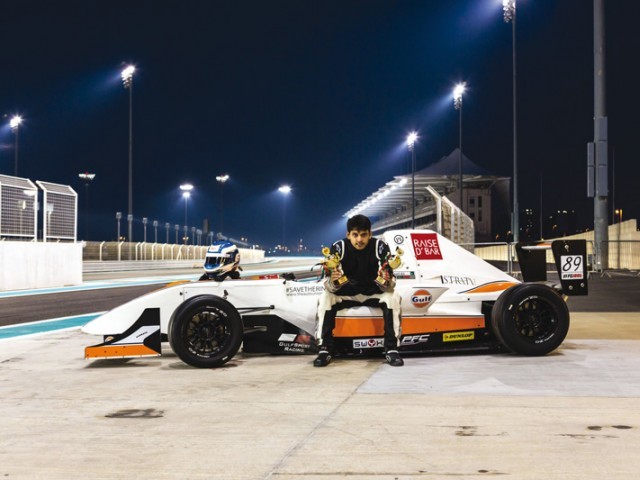
Saad believes that racing is a sport in which younger participants must start training as early as 5 to 7 years of age. PHOTO: SOCIAL MEDIA
ISLAMABAD:
“If you’ve lived your dream, you’ve accomplished your purpose in life.” This is the motto 27-year-old Saad Ali — the only certified professional Formula One racecar driver in Pakistan — lives by.
Ali dropped out of university, where he was enrolled as an undergraduate student in business administration, during his first semester in 2006 to pursue his passion for motorsports. The thrill for speed, adrenaline and to experience “life on the edge” is what inspired him to become a professional open-wheel racecar driver.
“Speed has always played a dominant role in my life – it makes me come alive,” said Saad, who started racing when he was 18. Most of the extreme sports practiced by adventure-lovers around the world have either speed or height as the prime ingredient, he added.
After finishing on the victory stand at his very first race in Bahrain, Saad realised that racing came to him naturally. His performance and lap-time greatly impressed his trainer who strongly advised him to pursue racing as a career. Ever since, he has participated in racing competitions in a number of countries including Abu Dhabi, Malaysia and Bahrain, where he has won several awards.
“Formula One is the pinnacle of auto racing and one of the world’s greatest sporting spectacles. The fact that it’s the highest level of racing that there is on four wheels inspired me to experience it,” he said. “Racing is not merely a competitive sport; it provides an excellent opportunity for people who love speed driving to have a go on a secure track.” It actually promotes road safety and minimizes the risk of mishaps, he added.
Saad believes that racing is a sport in which younger participants must start training as early as 5 to 7 years of age in order to develop and work on quick reflexes — necessary instincts and the skill-set required for this sport. Racing can severely strain the body and one can lose up to 5 kg of fluids per race. Endurance and stamina-building is an essential part of the training, and this only becomes more difficult as one grows older.
However, not many younger people are pursuing the sport in Pakistan today. This is due to the fact that racing is an expensive sport and Pakistan does not have the required infrastructure for its training which subsequently has to be acquired from other countries that offer specialized courses. It was only in 2013 that Pakistan’s first karting track was built in Lakeview Park in Islamabad. “The government should consider building a world standard racing track while the corporate world needs to start looking into auto racing from investment perspective because it’s an extremely profitable business worldwide,” Saad explained.
And if there’s one piece of advice Saad has for avid racing fans and motorsport enthusiasts: start as early as possible and understand the challenges and limitations associated with the sport in a developing country like Pakistan.
Work in progress: Govt procures land to establish high-security prison in Jamshoro
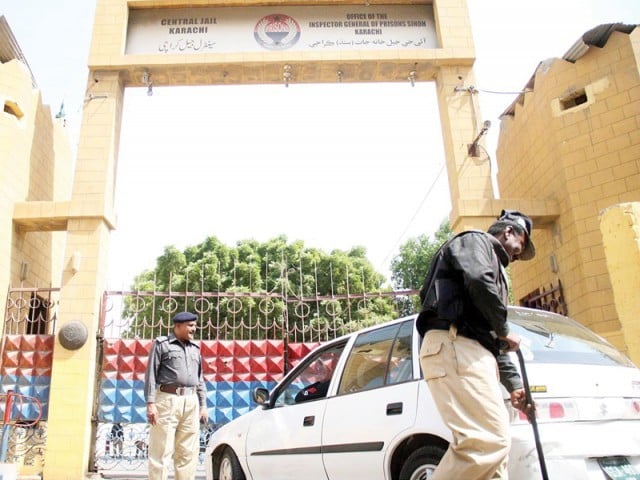
Policemen check a car at the entrance of Karachi Central Jail after an escape tunnel was found in a house near the prison. Security has been beefed up in jails across the province. PHOTO: ONLINE
KARACHI:
Given the latest attempt to bypass jail security, Sindh chief secretary Sajjad Hotiana has asked the relevant officers to speed up the work on the High Security Prison Project, for which Rs1.49 billion have been allocated.
Home Secretary Dr Niaz Ali Abbasi told the participants of a meeting on Tuesday that land has been acquired for this project in Jamshoro. Hotiana advised the officials to start work during the current fiscal year so that it is completed on time.

Under this project, high-security prisons will be established in Karachi, Larkana, Hyderabad, Sukkur and Khairpur, in addition to the Jamshoro High Security Prison. It was also decided that the katchi abadis and encroachments around prisons will be scrutinised to avoid security breaches in the future.
Move to Super Highway
The city’s central jail will be moved to Super Highway, announced prisons minister Manzoor Wassan on Tuesday.
He was talking to the media after a meeting with the law enforcement agencies, which had averted an attempt to break into the jail a few days ago. “We will move a summary to the chief minister to move the jail soon,” he announced, adding that the prison is now surrounded by residential areas which is not safe. In the present circumstances, it is very difficult for the government to secure the prison, he added.
“Until the prison is relocated, the government will remove encroachments around the prison,” he said. “We are considering demolishing multi-storey buildings located in front of the jail, especially in Ghausia Colony, which were built against the law.”
Wassan told The Express Tribune that a proposal has already been made to convert the existing premises into a judicial complex. “All city courts will be shifted to central jail, which will provide a safe environment to the judges, lawyers and litigants who also face threat.”
Apart from Karachi prison, the facilities in Hyderabad and Sukkur have also faced threats, said Wassan.
Committee to probe into tunnel case
Meanwhile, the prisons minister has constituted an inquiry committee, after the chief minister’s approval, to probe into the tunnel case. The committee, comprising Police DIG South Abdul Khaliq Shaikh, the home department additional secretary and representatives of Karachi Central Jail, will submit its report within a week.
Moreover, the prison department promoted six deputy jail superintendents of grade, BPS-16, to superintendents of grade BPS-17. The department notification said these officials deserved the higher rank.
Promoting innovation to meet growing challenges

Entrepreneurs were awarded prizes in the categories of agriculture, rural and manufacturing innovation. PHOTO: facebook.com/PakistanInnovationFoundation
ISLAMABAD:
Technology is not the response to all issues but it can help reduce a number of problems faced by the masses in Pakistan.
Ideas such as social entrepreneurship, social mobility and by leveraging technology, it is possible to address problems ranging from poverty to education through sustainable and scalable programming, said experts at the conference titled ‘Pakistan’s First Innovation Forum’ organised by the Pakistan Innovation Foundation (PIF) at a local hotel on Thursday.
Participants from the industry, business, academia and government as well as innovators and entrepreneurs gathered and held sessions on corporate development, and educational innovation.
The overarching aim of the conference was to create a culture of problem-solving and help create an innovation eco-system in the country. In the development innovation session, Omer Ghani, managing director at the Enclude (Pvt) Limited, said that combination of demand and supply was the key to achieving targets, adding that innovation needed to go beyond definition now.
Among other speakers included Izhar Hunzai, the former CEO of Aga Khan Rural Support Programme, who said that talent and opportunities existed and they needed a platform to be put into practice.

Raheel Waqar, CEO at the White Rice Communication, emphasised on creating a platform where the best minds would be able to find social solutions. The second important thing is the practice to start accepting our failures and move on. During the event, many of the entrepreneurs were awarded prizes in the categories of agriculture and rural innovation, manufacturing innovation and learning innovation challenge worth more than Rs10 million.
The winners of Rs1,000,000 National Innovation Grand Challenge (NIGC) was Dr Tariq Mahmood of Institute of Space Technology (IST) who developed a semi-automatic Khaddi (Agri+Rural Innovation Prize) and Dr Akhtar Khalil (and his team iFahja) for his MySmartRemote smart-phone auto-theft device.
GILGIT-BALTISTAN: Raikot Bridge over the Indus River on the Karakoram Highway


PESHAWAR - Suadi American Consortium has shown its interest to invest up to $2 billion in the development of energy sector projects in Khyber Pakhtunkhwa to utilise natural resources of province in order to generate cheap electricity.
In this context, a simple documentary procedure will be proposed to start various projects in hydel, solar and oil & gas sector on fast track basis. A group of investors of Suadi American Consortium leading by the Princeton Environmental Group’s president Peter Tien paid visit to civil secretariat Peshawar on Thursday.
Meanwhile, the secretary energy & power department Sahibzada Saeen Ahmed gave a detailed presentation to the investor group about the available energy sector projects in Khyber Pakhtunkhwa. The same investment presentation was also attended by CEO PEDO, Engr. Bahadur Shah, CEO KPOGCL Engr. Razi uddin, CPO E&P Syed Zainullah Shah and chief finance officer Akber Ayub. During the presentation, same working investment group was informed about the available 15 hydropower projects those feasibility studies have already been prepared and ready for construction. Group leader Peter Tien has expressed that his group intends to invest up to $2 billion in energy sector of KP but a simple procedure will be adopted in documentary procedure while starting the construction work in these projects. He hoped that our group will produce cheap electricity through available natural energy resources of the province. He stated that our working group will visit again Peshawar in next month to plan the commencement of construction works in energy projects.
SINDH HIGH COURT STAYS NUCLEAR POWER PLANT CONSTRUCTION

Prime Minister Nawaz Sharif at a ceremony launching the construction of the atomic power plant at Paradise Beach. PID—AFP
TWO-MEMBER BENCH SUMMONS STAKEHOLDERS TO NEXT HEARING ON NOV. 11.
The Sindh High Court on Thursday blocked the Pakistan Atomic Energy Commission from establishing two nuclear power plants on the outskirts of Karachi in violation of environmental laws.
Hearing a petition filed by Sharmeen Obaid-Chinoy, Dr. Pervez Hoodbhoy, Dr. A. H. Nayyar and Arif Belgaumi, a two-member bench led by Chief Justice Maqbool Baqar issued notices to the PAEC, the Pakistan Nuclear Regulatory Authority chairman, the Sindh Environment Protection Agency director general, the Pakistan Environment Protection Agency chairman and the Sindh Environmental and Alternative Energy Department to respond to the complaints by Nov. 11.
During proceedings on Thursday, the petitioners’ counsel, Abdul Sattar Pirzada, submitted that the PAEC intended to build the K-2 and K-3 reactors using the ACP-1000 design, which has not been constructed or tested anywhere else. The 1,100MW power plants, which are to be built by the China National Nuclear Corporation (CNNC), have “unclear” safety precautions, said Pirzada, adding that any malfunction could prove disastrous for the 21 million estimated residents of Karachi.
The petitioners’ lawyer claimed that the nuclear disasters in Japan (2011) and Ukraine (1987) had raised concerns about the safety measures adopted in nuclear plants. He said reactors located so close to a major population hub like Karachi required planning for mass evacuation in case of a nuclear disaster. He told the judges that the city lacked the infrastructure for evacuations.
According to Pirzada, the nuclear project was granted an environmental impact assessment without fully complying with environment protection laws, adding that no public hearing had been organized to take all stakeholders’ concerns into consideration. The lawyer urged the judges to declare the project illegal until a public hearing could be organized to determine the suitability of the reactor location.
Pirzada told Newsweek his clients did not wish for the project to be cancelled, as was being presented in the media. “I’m dismayed to see in the press that the perception is that [the petitioners] don’t want the plant to open, that they are against energy generation in Pakistan,” he said. “That is not correct. What they are simply saying is that they have a right to attend a public hearing so all concerns of the public could be addressed.”
The petitioners’ counsel said this was not a matter of national security, but personal safety. “In a place like Pakistan, where governance is so poor anyway and the administration has failed to act on so many occasions, what kind of contingency plan can they have?” he asked, noting that transparency would ensure “all concerns of the public could be addressed.”
Talking to Newsweek via email after the stay order had been issued, Hoodbhoy said he had been forced to turn to the courts after the PAEC had refused to hear the petitioners’ concerns. “They tell us our fears are baseless” because “accidents can’t happen, we’ll be very careful, tsunamis are not coming to Karachi.” He said the PAEC had also claimed it could not share environmental assessment reports on the project because it’s a matter of “national security.” He said they had also claimed the International Atomic Energy Agency has visited the site and declared it safe. “The IAEA is not responsible for nuclear plants. It does not analyze what specific reactors may do under different circumstances. That is not their job,” he added.
He said the project could only be viable if it were moved far away from any major population centers, noting that this was law in the U.S. “They [government] do not have a major evacuation plan for Karachi,” he said. “For Pakistan you have an additional issue where you do have people who want to willfully inflict damage,” he said, adding, “At least the PAEC is being forced to hold a public hearing about the safety aspect, something it has steadily refused to do.”
China keen to invest in Pakistan's hydro energy, construction projects

ISLAMABAD – A 16-member business delegation led by, Department of Commerce of Yunnan Province of China, Deputy Director General Yang Hui, visited Islamabad Chamber of Commerce and Industry on Friday and took keen interest to invest in Pakistan with particular focus on hydro energy and construction sectors.
The delegation was representing hydropower, engineering, construction, roads and bridges and export credit insurance. Addressing the business community, Department of Commerce of Yunnan Province, Deputy Director General Yang Hui said that Pakistan and China were historically good friends and stressed for more cooperation between Pakistan and Yunnan Province of China, said a press release issued by Islamabad Chamber of Commerce & Industry (ICCI).
He said that the purpose of their visit was to make direct interaction with Pakistani counterparts to promote business relations of Pakistan with Western part of China. He said that big companies of Yunnan Province doing business in hydropower, construction including highways, roads and bridges wanted to contribute in the development of Pakistan by establishing joint ventures here.
They were also interested to cooperate with Pakistan in upgrading silk route to improve communication network between the two countries. He said that private sectors of both countries should improve direct communication to realise full potential of business opportunities. He stressed that Chambers of Commerce of both countries should develop close liaison to exchange business related information and promote business linkages.
He termed Pakistan as an important destination for Chinese investors and also invited Pakistani counterparts to visit Yunnan Province to explore business opportunities. Welcoming the Chinese delegation, Islamabad Chamber of Commerce and Industry President Muzzamil Hussain Sabri said that Pakistan needed huge investment, especially in hydro, coal and wind energy, construction of motorways, highways and road networks and stressed that entrepreneurs of Yunnan Province should explore investment opportunities in these areas to earn lucrative returns.
He said lack of feasibilities was a major constraint in promoting joint ventures and investment between the two countries and stressed that Governments of Pakistan and China should form a Joint Committee to prepare feasibilities of projects which will help in promoting business relations between the two countries. He was hopeful that Pak-China Economic Corridor would open a new chapter of close cooperation and create plenty of opportunities for business collaboration between the private sectors of both countries.
He assured that ICCI would like to work closely with Yunnan Province to promote trade and economic relations between Pakistan and West China.
Full throttle: Meet Pakistan’s only certified professional F1 driver

Saad believes that racing is a sport in which younger participants must start training as early as 5 to 7 years of age. PHOTO: SOCIAL MEDIA
ISLAMABAD:
“If you’ve lived your dream, you’ve accomplished your purpose in life.” This is the motto 27-year-old Saad Ali — the only certified professional Formula One racecar driver in Pakistan — lives by.
Ali dropped out of university, where he was enrolled as an undergraduate student in business administration, during his first semester in 2006 to pursue his passion for motorsports. The thrill for speed, adrenaline and to experience “life on the edge” is what inspired him to become a professional open-wheel racecar driver.
“Speed has always played a dominant role in my life – it makes me come alive,” said Saad, who started racing when he was 18. Most of the extreme sports practiced by adventure-lovers around the world have either speed or height as the prime ingredient, he added.
After finishing on the victory stand at his very first race in Bahrain, Saad realised that racing came to him naturally. His performance and lap-time greatly impressed his trainer who strongly advised him to pursue racing as a career. Ever since, he has participated in racing competitions in a number of countries including Abu Dhabi, Malaysia and Bahrain, where he has won several awards.
“Formula One is the pinnacle of auto racing and one of the world’s greatest sporting spectacles. The fact that it’s the highest level of racing that there is on four wheels inspired me to experience it,” he said. “Racing is not merely a competitive sport; it provides an excellent opportunity for people who love speed driving to have a go on a secure track.” It actually promotes road safety and minimizes the risk of mishaps, he added.
Saad believes that racing is a sport in which younger participants must start training as early as 5 to 7 years of age in order to develop and work on quick reflexes — necessary instincts and the skill-set required for this sport. Racing can severely strain the body and one can lose up to 5 kg of fluids per race. Endurance and stamina-building is an essential part of the training, and this only becomes more difficult as one grows older.
However, not many younger people are pursuing the sport in Pakistan today. This is due to the fact that racing is an expensive sport and Pakistan does not have the required infrastructure for its training which subsequently has to be acquired from other countries that offer specialized courses. It was only in 2013 that Pakistan’s first karting track was built in Lakeview Park in Islamabad. “The government should consider building a world standard racing track while the corporate world needs to start looking into auto racing from investment perspective because it’s an extremely profitable business worldwide,” Saad explained.
And if there’s one piece of advice Saad has for avid racing fans and motorsport enthusiasts: start as early as possible and understand the challenges and limitations associated with the sport in a developing country like Pakistan.
Work in progress: Govt procures land to establish high-security prison in Jamshoro

Policemen check a car at the entrance of Karachi Central Jail after an escape tunnel was found in a house near the prison. Security has been beefed up in jails across the province. PHOTO: ONLINE
KARACHI:
Given the latest attempt to bypass jail security, Sindh chief secretary Sajjad Hotiana has asked the relevant officers to speed up the work on the High Security Prison Project, for which Rs1.49 billion have been allocated.
Home Secretary Dr Niaz Ali Abbasi told the participants of a meeting on Tuesday that land has been acquired for this project in Jamshoro. Hotiana advised the officials to start work during the current fiscal year so that it is completed on time.

Under this project, high-security prisons will be established in Karachi, Larkana, Hyderabad, Sukkur and Khairpur, in addition to the Jamshoro High Security Prison. It was also decided that the katchi abadis and encroachments around prisons will be scrutinised to avoid security breaches in the future.
Move to Super Highway
The city’s central jail will be moved to Super Highway, announced prisons minister Manzoor Wassan on Tuesday.
He was talking to the media after a meeting with the law enforcement agencies, which had averted an attempt to break into the jail a few days ago. “We will move a summary to the chief minister to move the jail soon,” he announced, adding that the prison is now surrounded by residential areas which is not safe. In the present circumstances, it is very difficult for the government to secure the prison, he added.
“Until the prison is relocated, the government will remove encroachments around the prison,” he said. “We are considering demolishing multi-storey buildings located in front of the jail, especially in Ghausia Colony, which were built against the law.”
Wassan told The Express Tribune that a proposal has already been made to convert the existing premises into a judicial complex. “All city courts will be shifted to central jail, which will provide a safe environment to the judges, lawyers and litigants who also face threat.”
Apart from Karachi prison, the facilities in Hyderabad and Sukkur have also faced threats, said Wassan.
Committee to probe into tunnel case
Meanwhile, the prisons minister has constituted an inquiry committee, after the chief minister’s approval, to probe into the tunnel case. The committee, comprising Police DIG South Abdul Khaliq Shaikh, the home department additional secretary and representatives of Karachi Central Jail, will submit its report within a week.
Moreover, the prison department promoted six deputy jail superintendents of grade, BPS-16, to superintendents of grade BPS-17. The department notification said these officials deserved the higher rank.
Promoting innovation to meet growing challenges

Entrepreneurs were awarded prizes in the categories of agriculture, rural and manufacturing innovation. PHOTO: facebook.com/PakistanInnovationFoundation
ISLAMABAD:
Technology is not the response to all issues but it can help reduce a number of problems faced by the masses in Pakistan.
Ideas such as social entrepreneurship, social mobility and by leveraging technology, it is possible to address problems ranging from poverty to education through sustainable and scalable programming, said experts at the conference titled ‘Pakistan’s First Innovation Forum’ organised by the Pakistan Innovation Foundation (PIF) at a local hotel on Thursday.
Participants from the industry, business, academia and government as well as innovators and entrepreneurs gathered and held sessions on corporate development, and educational innovation.
The overarching aim of the conference was to create a culture of problem-solving and help create an innovation eco-system in the country. In the development innovation session, Omer Ghani, managing director at the Enclude (Pvt) Limited, said that combination of demand and supply was the key to achieving targets, adding that innovation needed to go beyond definition now.
Among other speakers included Izhar Hunzai, the former CEO of Aga Khan Rural Support Programme, who said that talent and opportunities existed and they needed a platform to be put into practice.

Raheel Waqar, CEO at the White Rice Communication, emphasised on creating a platform where the best minds would be able to find social solutions. The second important thing is the practice to start accepting our failures and move on. During the event, many of the entrepreneurs were awarded prizes in the categories of agriculture and rural innovation, manufacturing innovation and learning innovation challenge worth more than Rs10 million.
The winners of Rs1,000,000 National Innovation Grand Challenge (NIGC) was Dr Tariq Mahmood of Institute of Space Technology (IST) who developed a semi-automatic Khaddi (Agri+Rural Innovation Prize) and Dr Akhtar Khalil (and his team iFahja) for his MySmartRemote smart-phone auto-theft device.
GILGIT-BALTISTAN: Raikot Bridge over the Indus River on the Karakoram Highway
Last edited:
Sulman Badshah
STAFF

- Joined
- Feb 22, 2014
- Messages
- 4,274
- Reaction score
- 33
- Country
- Location
KARACHI: Bahria Town resumed work on 2 underpasses & flyover in Clifton. Sindh High Court dismissed the petition against Bahria town project




DarkPrince
SENIOR MEMBER

- Joined
- Dec 28, 2011
- Messages
- 2,279
- Reaction score
- 0
- Country
- Location
i like bahria town. its really well designed
Sulman Badshah
STAFF

- Joined
- Feb 22, 2014
- Messages
- 4,274
- Reaction score
- 33
- Country
- Location
PESHAWAR: New vehicles for Municipal Services Programme arriving in the city.

PESHAWAR: Computerized Driving Training Facility at Police Driving School.

PESHAWAR: Expansion work on Peshawar Ring Road underway

PESHAWAR: Computerized Driving Training Facility at Police Driving School.
PESHAWAR: Expansion work on Peshawar Ring Road underway
Sulman Badshah
STAFF

- Joined
- Feb 22, 2014
- Messages
- 4,274
- Reaction score
- 33
- Country
- Location
Similar threads
- Article
- Replies
- 0
- Views
- 624
- Replies
- 0
- Views
- 292
- Replies
- 0
- Views
- 167
- Replies
- 0
- Views
- 604
- Article
- Replies
- 0
- Views
- 153

